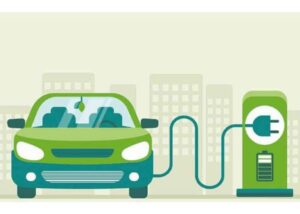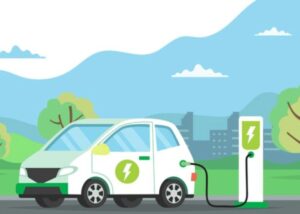Delhi’s EV Revolution

In an era where environmental sustainability is paramount, Delhi, the heart of India, has embarked on a groundbreaking journey towards eco-friendly transit. The city’s administration has launched a comprehensive Electric Vehicle (EV) policy, targeting a significant reduction in pollution and greenhouse gas emissions. This policy not only promotes the widespread adoption of EVs among its populace but also positions Delhi as a pioneer in establishing a sustainable urban future.
Delhi’s journey into sustainable transportation has been significantly bolstered by its progressive Electric Vehicle (EV) policy, focusing on EV Subsidies in Delhi. With the ambitious target of making EVs a mainstream choice, EV Subsidies in Delhi is not just a financial mechanism but a catalyst for change.
EV Subsidies in Delhi: A Gateway to Electric Mobility
At the heart of Delhi’s push for electric mobility is the introduction of EV Subsidies in Delhi, which has been pivotal in driving EV adoption rates to double digits – averaging 10% in 2022 and peaking at 12.5% in March 2022. This subsidy, amounting to nearly 100 crores, is instrumental in reducing the total cost of ownership for EVs, making them a viable alternative to traditional fuel-based vehicles.
The Multifaceted Role of EV Subsidies in Delhi
Central to Delhi’s EV policy is the provision of EV subsidies. These subsidies are designed to make EVs more affordable for the average consumer, thereby encouraging a shift from conventional fossil fuel-powered vehicles. The incentives cover a range of aspects from the purchase price to charging infrastructure, making it financially viable for residents to switch to electric vehicles.
Types of EV Subsidies in Delhi: An Overview
- Purchase Incentives: The policy provides substantial subsidies for the purchase of EVs. This includes both two-wheelers and four-wheelers, catering to a wide range of consumers. The subsidies are directly linked to the battery capacity of the vehicle, promoting the adoption of vehicles with longer ranges.
- Charging Infrastructure: Recognizing the importance of a robust charging infrastructure, the policy also includes incentives for setting up charging stations. This measure is crucial in addressing range anxiety among potential EV owners.
- Scrappage Incentives: To further encourage the replacement of old, polluting vehicles, the policy includes a scrappage incentive. This is provided for individuals who scrap their old internal combustion engine vehicles in favor of purchasing an EV.
- Public Transport Electrification: EV Subsidies in Delhi also extend to public transport, with an all-electric public transport fleet target by 2030. Currently, Delhi boasts 644 new buses, of which 152 are e-buses, and plans to add 1500 more e-buses by December 2022, creating one of the largest e-bus fleets in the country.
Spurring Awareness and Adoption: The Role of Campaigns
 EV Subsidies in Delhi are complemented by initiatives like the Switch Delhi campaign, aimed at raising awareness about the economic and environmental benefits of EVs. This campaign, through various media platforms, has been integral in sensitizing and encouraging citizens to embrace electric mobility.
EV Subsidies in Delhi are complemented by initiatives like the Switch Delhi campaign, aimed at raising awareness about the economic and environmental benefits of EVs. This campaign, through various media platforms, has been integral in sensitizing and encouraging citizens to embrace electric mobility.
EV Subsidies in Delhi: A Comparative Analysis
Delhi’s EV policy and initiatives have not only made a mark locally but also stand on par with global leaders in EV adoption like California, New York, and Paris. With over 62,000 EVs sold in the first two years of the policy, Delhi has set a benchmark in EV adoption, supported by a robust charging network and a comprehensive subsidy mechanism.
Addressing Challenges and Scaling New Heights
Despite the success of EV Subsidies in Delhi, certain challenges still persist. Ensuring a seamless supply of electricity and expanding the charging infrastructure to keep pace with the growing number of EVs remain critical. Furthermore, the need to continuously innovate and adapt the policy to changing technological landscapes and consumer preferences is vital for its sustained success.
Key Issues in EV Adoption in Delhi
Let’s delve into the challenges in EV adoption in Delhi and compare them with the initiatives taken in 2024.
Inter-Agency Coordination and Standardization
The deployment of EV charging and swapping stations required coordination among multiple agencies with their own rules regarding land use, leasing criteria, and revenue sharing.
A Working Group (WG) was formed in April 2019 to develop a holistic EV-charging strategy for Delhi and to resolve issues related to the coordinated rollout of charging stations.
Availability of Feasible and Affordable Sites
Another major challenge was identifying and accessing suitable land parcels for charging stations due to complex land-ownership patterns and regulations.
Economic Viability of Operating Charging Stations
High capital and operational costs, coupled with low initial capacity utilization, impacted the economic viability of operating charging stations.
Battery Swapping and EV Charging in the Same Tender
The government also faced the challenge of incorporating battery swapping and EV charging in the same tender to provide a level playing field for both solutions.
Technological Obsolescence
Rapid evolution in EV charging technology posed a risk of installed chargers or swapping solutions becoming obsolete.
Lack of Awareness and Incentives for Installing EV Chargers
Limited understanding among owners of parking spaces about EV chargers, identifying quality chargers, and accessing incentives has also been witnessed.
Regulatory Impediments
Constraints in installing EV meters on society premises with existing connections and the absence of clear regulatory directions is another challenge that requires immediate action.
2024 Initiatives: Revitalizing the E-Mobility Sector
 Unified Approach for Land Parcels:
Unified Approach for Land Parcels:
The government aggregated land parcels, assessed their feasibility, and developed a unified tender, ensuring a mix of prime and underserved area sites.
Innovative Economic Models:
Lease linked to revenue and the provision of 100 kW electrical connections on each site, defraying costs associated with leasing/purchasing land and augmenting electrical infrastructure.
Flexibility in Business Models
Concessionaires were given the flexibility to decide the charging and swapping combination and their service charges for 70% of the space.
Public-Private Partnership for EV Charging Infrastructure:
Partnerships with DISCOMs for the empanelment of vendors, making quality chargers accessible at subsidized rates were another form of EV Subsidies in Delhi.
Government Fleet Electrification
An order was issued in February 2021 to transition all GNCTD-hired petrol, diesel, and CNG vehicles to EVs within six months.
Public Awareness and Stakeholder Engagement
Initiatives like the Switch Delhi campaign, Delhi EV Forum, and E-Auto Mela were implemented to increase awareness and encourage EV adoption.
E-Bus Adoption
There has been a significant increase in the procurement of e-buses, with a planned transition from 2% electric buses in 2022 to 70% in 2025.
Looking Forward: Delhi’s Vision for Sustainable Mobility
Looking ahead, EV Subsidies in Delhi are poised to play a pivotal role in shaping the future of urban mobility. With plans to transition to an all-electric public transport fleet by 2030, Delhi is on track to becoming a leading example of how policy interventions can effectively drive the adoption of sustainable transportation.
Delhi’s EV Policy is a testament to Delhi’s commitment to a cleaner, greener future. It’s a policy that not only addresses the immediate need for sustainable transportation but also lays the foundation for a future where electric mobility is the norm. Delhi’s EV Policy offers more than just financial assistance; it’s a comprehensive approach towards making Delhi a leader in sustainable urban mobility. The synergy of EV Subsidies in Delhi, awareness campaigns, and infrastructural development under this policy illustrates a model that can inspire cities worldwide.

